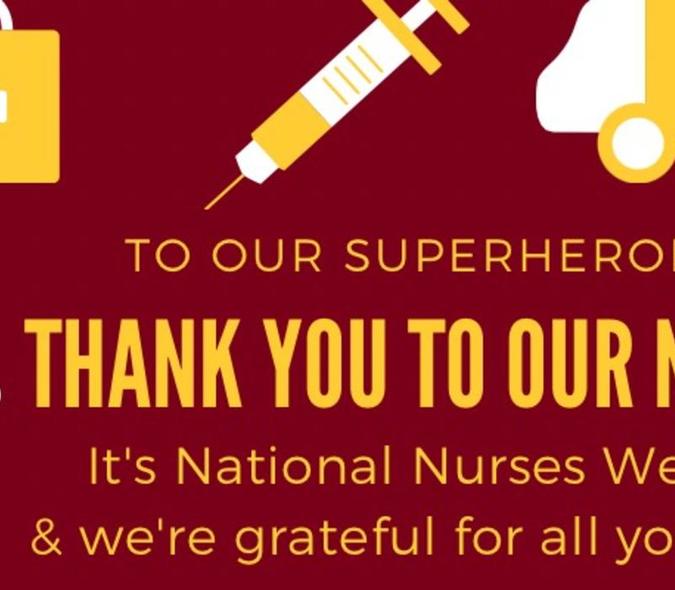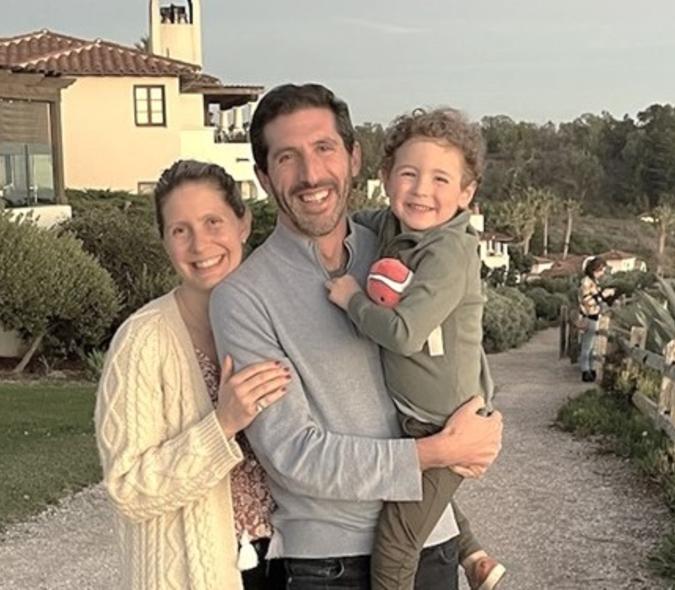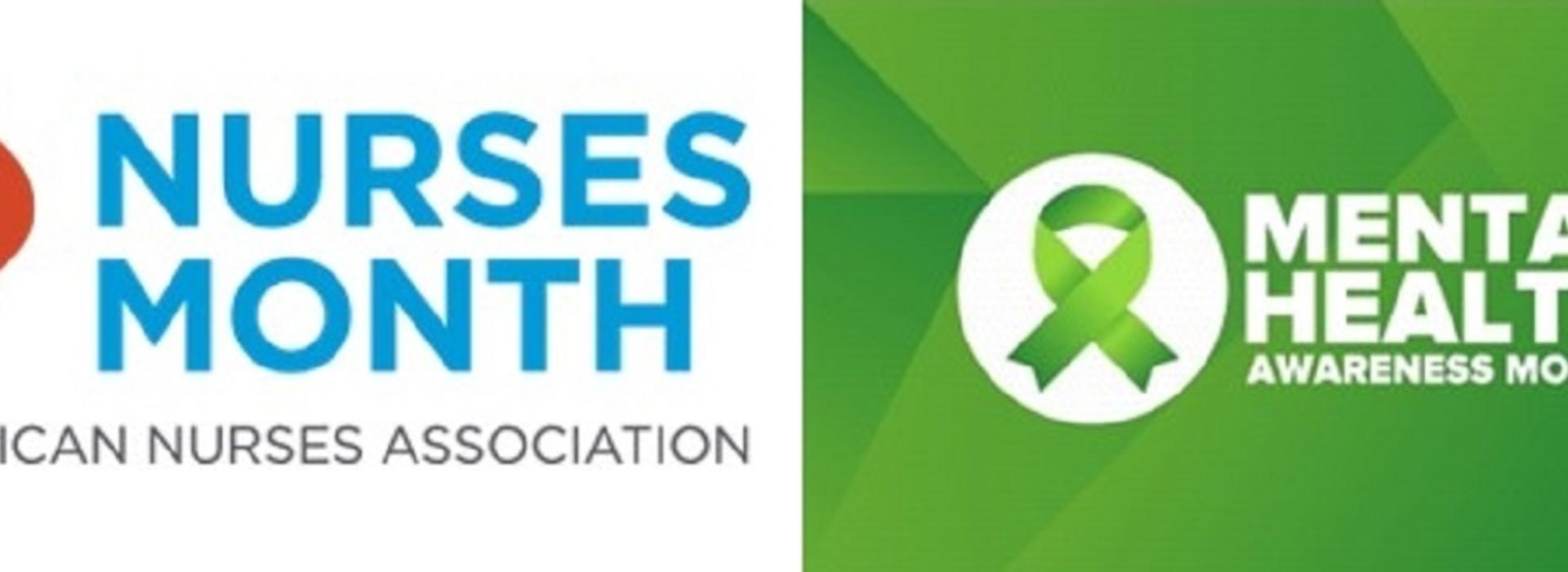
New outpatient nurses find that psychiatric nursing is challenging, fulfilling, and rewarding
May is not only Nurses Month but is also Mental Health Awareness Month. Perhaps nowhere else is the impact of nurses felt more acutely than in the mental health setting. To celebrate that impact, we’re focusing on four members of our nursing team. All four are new to outpatient work in our clinics, although they bring a wealth of experience with them. They include:
- Heather Stephenson, BSN
- Jean Rowles, ADN
- Kayla Warner, BS, ADN
- Luciana Herr, ADN.
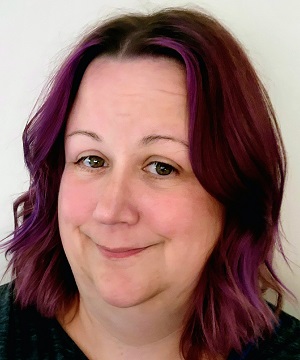
When asked what drew them to psychiatric nursing, the group gave similar answers. “I was working as a medical assistant in various clinics,” said Heather (pictured here). “When I did my psych rotation in nursing school, it was new and different, and I found I really enjoyed it.” Jean had dealt with people who had mental illness in the community and among family and friends. Luciana agrees and believes that her own family’s experience with mental health issues and early career experiences inspired her to eventually pursue a career in the field. As Kayla was growing up, she found that people would come to her with “a lot of their stuff.” She started working in a hospital as a psychiatric associate. “The more I saw how the nurses operated there, the more I realized it was something I wanted to do,” she said.
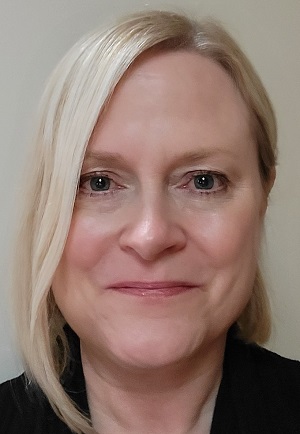
The group acknowledges that there are challenges with their chosen specialty. For Jean (pictured here), it’s hard when patients are in denial about their mental health issues. Her most current challenge, however, is making the transition from inpatient work in a hospital to outpatient service in a clinic. “I’m learning that there isn’t a solution right this minute for our clinic patients,” she said. “Things in inpatient felt more urgent.” Kayla agrees. “I’m used to having to get things done right now,” she said. “With outpatient, there is a different workflow. You still want to do your best to get everyone healthy right away, though.”
Heather looks at the big picture when thinking about the challenges of her career. “Working within the system is hard,” she said. “Patients really need help and sometimes, there isn’t any. We try hard to get them the access they need at the right time.” Luciana thinks that scarce resources are one of the biggest challenges in psychiatric nursing. “I believe we need to invest more in mental health,” she said. “Sometimes, patients must wait for a long time to get the resources they need.”
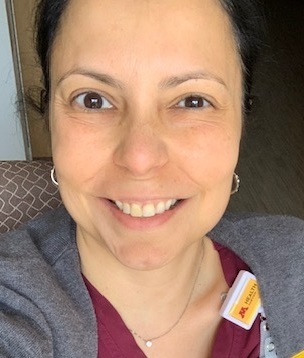
On the flip side of the coin, these nurses find that working with psychiatric patients is very satisfying. “What’s rewarding is when you’re able to help someone improve their quality of life or return to their baseline,” said Jean. Luciana (pictured here) agrees. “It’s rewarding to be there for someone going through a crisis and help them walk through the steps to reframe their mindset – to see them feel better as the result of an interaction with us,” she said. Having worked on the inpatient side for 10 years, Kayla noted that being able to observe improvement in patients – to see them clear or able to communicate their appreciation — “is a cool thing.” What’s most rewarding for Heather is building relationships with her patients. “Being able to be someone they can trust and can turn to,” she said. “I enjoy helping them meet their needs and navigate the system.”
When asked what best prepared them for their current roles, Heather gave a nod to her background in mental health and having a solid base for helping patients and their families navigate their conditions. “I have a history of dealing with patients who are in crisis and helping de-escalate them,” she said. “Right now, we’re doing this all over the phone.” Having previous experience in the psychiatric setting was also the most helpful for Kayla. “It helped me learn how to prioritize and manage my work,” she said. “Now, I’m doing a lot of troubleshooting and providing care coordination. I feel like my role is in between the patients and the providers. I’m the facilitator.”
Jean, who had a previous career in financial services, noted that communication was a big part of that job and is helping her now. “I learned how to meet people where they’re at, to build relationships, and to handle issues during crises,” she said. Luciana went to law school at night in her native Brazil, while teaching English as a second language during the day. That combination of experience, both professionally and personally, helped prepare her for her nursing career.
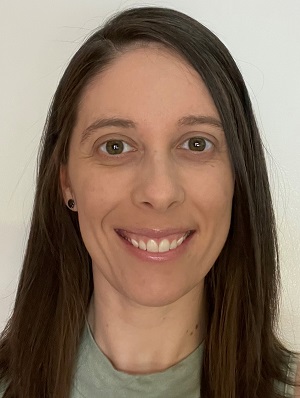
If someone should ask them for advice about becoming a psychiatric nurse, Kayla (pictured here) noted that they need to be flexible. “Things don’t always turn out the way you expect them to,” she said. “You also need to be good at not taking things personally. People say a lot of things to you when they’re in crisis. It’s good to remember that it’s not personal.” Luciana recommends being open minded and connecting with the best evidence-based practice. “You also need to be good at listening to the patient and to the providers,” she said. “And while you can sympathize and empathize, you should try to remain professional…it’s heartbreaking but we need to stay strong to give the right advice.”
Jean and Heather agreed about having therapeutic communication skills – being able to tailor your communication to where the patient is at. And being patient and a good listener are key. “You also have to focus on self-care so you don’t burn out,” Jean added. Additionally, finding a field you really like and enjoying that patient population is important, according to Heather.
The nurses wanted to emphasize how important their partnership with the providers is in managing patient care. “They depend on us to be the point person with the patient, making sure that the behind-the-scenes things are happening,” said Heather. “It’s an integral part of how the clinic runs.” The nurses partner with family members, too. “They can always call to get an update about patients and learn how to best help them,” Luciana said. “They’re often the primary source of support for our patients.”
Learn more:
American Psychiatric Nurses Association
